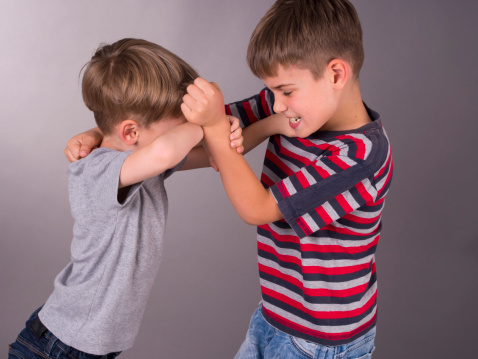There is no evidence that infants are born narcissistic. Most theories about how a narcissist develops a narcissistic personality are based on childhood trauma or entitlement. Narcissism in children can be challenging, but you can learn how to defuse their behaviors.
You might worry that your child is narcissistic if they are rude or try to get what they want. I am here to help you determine whether your child has a narcissistic personality disorder and to offer a solution to this narcissism in children. Whether they’re still young or have reached adulthood.
I will also help you deal with your child’s narcissistic behavior so that you and your child can get along better. What if your child had never experienced trauma but showed these symptoms early on? What if they don’t care about their siblings or you and your children?
Untreated narcissism disorder in youngsters can lead to various problems when they get older. Continue reading to learn about the symptoms, causes, diagnosis, treatment, challenges, and home care for children with narcissism.

What Exactly Is Narcissism?
Narcissism is a personality condition marked by an excessive obsession with self-admiration, self-aggrandizement, and self-importance. Narcissism in children is a personality disorder that makes children cocky, want attention and praise, have shallow relationships with others and do not care about them. It is connected with mental illnesses and is difficult to treat.
What Are The Types Of Narcissism In Children?
There are five types of narcissism in children, as itemized below:
1. Overt narcissism
This type of narcissism is associated with children whose narcissistic personalities include being outgoing, arrogant, entitled, overbearing, having an overblown self-image, wanting to be praised and adored, being exploitative, competitive, and lacking empathy.
Some study links overt narcissism to the Big Five personality qualities of extraversion and openness. It also means that children with obvious narcissism are more likely to feel good about themselves and less likely to feel sad, anxious, or lonely. People who exhibit overt narcissism may also overestimate their strengths and intellect.
2. Covert narcissism
Covert narcissism is a type of narcissism known as insecure narcissism or clandestine narcissism. It is the opposite of overt narcissism. While many people associate narcissism with being loud and controlling, those with covert narcissism do not fit this mold.
Covert narcissism, on the other hand, means that the person has low self-esteem and is more likely to feel anxious, hopeless, and embarrassed. Introversion, insecurity, lack of confidence, defensiveness, avoidance of the propensity to feel or play the victim
Children with covert narcissism often have difficulty absorbing criticism. But, unlike children with overt narcissism, Kids with covert narcissism are more likely to take criticism personally or see it wrongly. According to research, the categories of covert and overt narcissism aren’t necessarily mutually incompatible. In other words, a child with obvious narcissism may sometimes show more apparent signs of covert narcissism.

3. Antagonistic narcissism
According to some studies, hostile or antagonistic narcissism is a subtype of overt narcissism. This type of narcissism places a premium on rivalry and competitiveness. Some characteristics of hostile narcissism include arrogance, the propensity to take advantage of others, the tendency to compete with others, disagreeability or proneness to disputing.
According to 2017 research on narcissism and forgiveness, people with antagonistic narcissism were less inclined to forgive others than those with other forms of narcissism. According to a 2019 study, those with aggressive narcissism may also have lower levels of trust in others. Overt narcissism, also known as vulnerable narcissism and closet narcissism
4. Communal narcissism
Communal narcissism is the type of overt narcissism opposite of antagonistic narcissism. Children with communal narcissism support justice and are likely to consider themselves selfless. Yet, a study done in 2018 shows that a person’s actions don’t match what they believe. Children with communal narcissism may:
- Feel quickly morally indignant.
- See themselves as sensitive and generous.
- React passionately to what they perceive to be unjust.
So what distinguishes communal narcissism from genuine care for the well-being of others? The main difference is that children with communal narcissism need to feel important and have social power. For example, while communal narcissism may allow a child to state (and believe) that they have a solid moral code or care for others, they may be unaware that how they treat people contradicts their ideals.
5. Malignant narcissism
Malignant narcissism is a more extreme, trusted-source type of narcissism. It might also aggravate the individual living with it. Malignant narcissism is more closely related to overt narcissism than to covert narcissism. Children with malignant narcissism need to be admired and put above others.
Malignant narcissism, on the other hand, can show up as vengefulness, sadism, taking pleasure in the pain of someone else’s aggression when interacting with other people, paranoia, or too much worry about possible dangers. Children suffering from malignant narcissism may exhibit specific characteristics of antisocial personality disorder.
This indicates that someone with malignant narcissism is more likely to get into legal problems or develop a drug abuse issue. In short research of patients with borderline personality disorder (BPD), those with malignant narcissism had a more difficult time lowering anxiety and acquiring a better capacity to operate daily.
How Do Children Of Narcissists Behave?
How to Tell If Your Child’s Behavior Is Not Normal
- Monopolize discussions
- The child’s selfish behavior may be abnormal or disturbing.
- monopolize debates
- Belittle others by emphasizing their victories and accomplishments while undervaluing the contributions of others around them.
- A narcissistic child may be overconfident, not care about others, be bossy, and feel like they are better than others.
- They may also be arrogant and lack empathy for the sentiments of others.
- A narcissistic child may be unconcerned with personal cleanliness.
- Have a more challenging time empathizing with others
- When they don’t get their way, they have temper tantrums and get outraged.
- Push back against authoritative figures, especially when things aren’t going their way.
- A narcissistic child may be excessively self-assured,
- Have little empathy for others,
- be overbearing, and have a sense of entitlement.
- They may also be boastful,
- have a lack of empathy for others’ feelings,
- Always arrogant.
- A narcissistic child may be neglectful of personal hygiene,
- Have a more difficult time empathizing with people
- When they do not get their way, they are prone to temper tantrums and get enraged.
- Push back against authority figures, particularly when things aren’t going their way.
- But many of these things are normal for kids and teens at certain stages of their development.
- “Children’s behavioral patterns vary as they go through the phases of development,” admits Dr. Nealon.
- “As a result, it is especially crucial for parents not to read too much into a child’s behavior at any one period of their development.”
- “Temporary narcissistic behavior may be the consequence of a child’s reaction to recent growth changes, drugs, or even medical operations,” she says.
- “In addition, a child’s behavior may seem to alter as a consequence of family or school-related stress.”
You can read the social and emotional issues in a gifted child here.
These actions listed above are normal for kids and teens at different stages of their development. “Children’s behavioral habits change as they progress through the developmental stages,” Dr. Nealon admits. “As a result, it is essential for parents not to read too much meaning into a child’s conduct at any stage of development.”
Dr. Nealon says that what seems strange at a stage of development may be normal at another. She says that a child’s reaction to sudden growth changes, medicines, or surgery can cause them to act narcissistically for a short time.
“Furthermore, a child’s conduct may appear to change as a result of family or school-related stress.” How to Tell If Your Child’s Behavior Isn’t Normal, It’s conceivable that your child’s selfish actions are aberrant or alarming.
A Parent’s Guide To Age-Appropriate Discipline Of A Narcissistic Child
Dr. Peters suggests looking at the following things as a guide to figuring out how to discipline a narcissistic child:
- The kid’s age
- The kid’s maturity
- Behavioral patterns
- The long-term consequences of their actions on relationships:
“Parents should look for patterns of the aforementioned behavior that are persistent, intense, and that damage both family and social ties,” he advises. Dr. Peters says, “Pay attention to a child’s lack of self-awareness and knowledge about their actions and tendency to blame others too much.”
How Do I Stop My Child From Being A Narcissist?
“Early intervention is the best chance for improvement for any condition, including narcissistic traits,” says Dr. Peters. If you think your child’s behavior is upsetting or could be a sign of narcissistic personality disorder in the future, you might want to try some of the following things.
1. Discuss with your child how their actions affect others.
Help your kid understand how their actions influence others, develop empathy, and feel at ease in the world without relying on others to satisfy their needs. According to Dr. Peters, this will help children form healthy connections and learn how to feel and express love.
2. Increase your emotional self-awareness.
The unmet desire of a child is often the foundation of narcissism because they cannot trust their parents to supply their needs,” Macadam argues. As a result, she advises parents to be mindful of family difficulties that may induce alienation and to check in on them.
Dr. Peters agrees, adding that understanding one’s emotions and behaviors is the best thing one can do for themselves and their health. He advised you to consider asking these questions:
- “How do I view myself?”
- Do I treat people well?”
- “My relationships with others, how is it?”
- “Can I fulfill my needs?” How
“The more self-aware parents are, the more they can choose their behaviors and model those behaviors for their children,” Dr. Peters adds.
3. Consult with a mental health professional.
Assuming you are concerned about your child’s behavior, especially if there is a family history of narcissism, Dr. Peters advises you to talk to a mental health expert who works with children and teens. “It is crucial to assess if your kid is going through a developmental stage and/or demonstrating a pattern of troublesome behaviors that might benefit from treatment.”
Also read mental health of a gifted child here
Lastly, Macadam thinks that counseling is available for people whose narcissistic behavior is stable and consistent over time. “Today, there is far more information and comprehension of potentially risky activities,” she explains. “Taking advantage of family therapy support for parents and children may aid in adopting changes that lead to improved connection and understanding.”

What Are The Symptoms Of A Narcissistic Child?
Remember that it is normal for youngsters to want a lot of attention and feel entitled sometimes. If their actions cause harm to others, they may be narcissistic. If you feel your kid has NPD, take them to a psychiatrist or psychologist for a diagnosis so that they and your family can get the care they require. Keep an eye out for the following NPD symptoms:
- Overinflated ego
- Believe they are entitled to whatever they want and special treatment.
- The feeling of exceptionality and superiority to other children.
- They exaggerate their abilities and successes.
- Gaslighting is their method of influencing people.
- They take advantage of others or blame them for their failures.
- Unreasonable expectations of what they can achieve.
- They always gets angry when they are chastised or humiliated.
- They are jealous of other children.
- Lack of empathy.
- Having the mindset of being better than other children
- Making and retaining friends is challenging for them.
- Being the center of attention
- Withdrawal from those who do not pay attention or admire
- Not appreciative of parents or others for their generosity.
- Excluding children from their playgroup based on superficial factors
- Excessive self-importance
- Unrealistic expectations of endless success and power
- Avoid eye contact when talking to them.
- Separation anxiety
- Pathologic play
Please read, the burnout syndrome of a gifted child here.
- Other Symptoms includes:
- They assume they are superior to all the other kids.
- Expect a lot of adoration and respect.
- A trend of opportunism in behavior
- Need help understanding the needs of others.
- Arrogance
- Over magnifying their abilities or accomplishments.
- Exploitation people
- Envious of others’ successes
- Grandiosity
- Feelings of deserving favorable treatment.
- Feelings frequently contain delusions of limitless affluence, brilliance, power, beauty, or love.
- Excessive need for adoration
- Must monopolize conversations
- Patients who are ignored feel slighted, mistreated, exhausted, and angry.
- Relationships that are shallow and opportunistic
- Relationships are developed on surface features rather than the unique characteristics of others.
- People are only valued to the extent that they are helpfu
- The ability to care for the emotional needs or experiences of others, particularly loved ones, is severely limited or missing.
- Identity Disturbance
- The idea of self is exceptionally shallow, rigid, and frequently frail.
- Maintaining the notion that one is extraordinarily critical for self-stability.
- A high sense of self is easily eroded.
- Patients disregard or dismiss realities that contradict their arrogance.
- They refuse to take charge of their actions and the consequences.
- They throw temper tantrums when they are admonished.
- Disrespect for dignitaries and authorities
- Interactions are short.
- Intimacy is strictly prohibited.
- Regular feelings of emptiness and dullness.
- When they do not receive attention and admiration, patients feel empty, bored, depressed, or restless.
- Vulnerability to life changes
- Difficulty maintaining reasonable personal and professional goals throughout time
- Compromises needed by the school, employment, and relationships may be agonizing.
- Frequently happens in connection with antisocial behavior: the child will engage in fights or steal toys from other youngsters.
- Young adults may experience “failure to launch.”
- Suicide and suicidal thoughts are both elevated by a narcissistic child.
Is Narcissism Linked To Psychiatric Problems With Children Of Divorced Parents?
Divorce can be stressful for children and make narcissism more common. but notwithstanding, it does not always cause children to have a narcissistic personality disorder. The risk of narcissism in the surrounding environment is linked to overall stressful events and lifestyles, including parenting approaches and how parents engage with their children.
How Do Parents Raise A Narcissistic Child?
Early social interactions and overvaluing a child may develop a narcissistic personality disorder if preventative measures are not taken. How do you raise a narcissistic child? Suppose you anticipated narcissism in one of your children? or a youngster exhibits characteristics of narcissism, the first step is to seek psychological health treatment from a psychologist or therapist.
These experts might look at children with narcissistic personality disorder, figure out what’s wrong with them, and teach their parents how to take care of them properly. Is narcissism a taught behavior? The causes of narcissism remain unknown. Narcissism might be a learned or inherited trait.
According to the social learning concept, overvaluing by parents leads to narcissism. In contrast, the psychoanalytic theory says that a lack of parental care contributes to the development of narcissistic personality traits.

How Can I live With A Narcissistic Child?
To live with a narcissistic child, you must adopt non-negotiable limitations to deal with your child’s selfishness. Instead of emotional outbursts, you might utilize bargaining to push them to do the right thing. They might use phrases that play on your emotions to hurt your self-esteem, so you shouldn’t get mad at them. Seek advice and therapies to increase your self-esteem and reduce stress.
How do you deal with a narcissistic child? Let’s look at the list below:
1. Love the child passionately, but display a conditional love. If your child believes your love is conditional, they will feel pressured to succeed and be at their best. Consider how a child may feel in a particular scenario or why they might behave the way they do.
Additionally, remind yourself that they did not choose to be narcissists. Tell your youngster that you adore them just the way they are. Say, “I’ll always adore you, no matter what.” Praise their efforts rather than their results. Say phrases like, “Hard effort is what counts.” “Good work!” or “I’m really proud of you for sticking with it.”
You can read the abnormal behavior of a gifted d child here.
2. Be an example of good relationships for your child. Your children learn by observing. Therefore, be an excellent teacher. Show your youngster the value of being kind and polite to others. Also, be dependable for your friends and family, so your youngster learns what it is to be loyal.
3. You may ask them what they observe about your relationships. “Did you notice how I spoke sweetly to my friend?” or “I recently was invited to a party on the same day I offered to help Grandma.” “What do you think I should do?”
You can read the abnormal behavior of a gifted d child here.
4. Discuss with your youngster how their conduct impacts others. Speak softly to them, so they don’t feel confronted. Working together, you can figure out where you’re coming from and develop some ideas. Because narcissists are obsessed with themselves, utilize “we” language to sway your child’s opinion.
5. You may say, “When we call somebody names, it truly damages their feelings.” We talk pleasantly to others, and they reciprocate.” “I understand why you desire a new phone. But we must wait for what we desire at the same time.
6. “It hurts my sentiments when you demand things from me.” “I know you’re swamped at work, but so am I. I’m completely overwhelmed by the amount of assistance you anticipate from me. Together, we need to do a better job of taking care of our needs.”
7. When addressing behavioral issues, speak gently and firmly. Disciplining your child might be difficult since they are like a ticking time bomb. Narcissists are extremely sensitive to criticism and hostility, and they will explode if they are addressed.
Instead, sit down with them and explain what they did wrong. Explain what they could do differently next time and what repercussions they will face. If your child is extremely small, you may remark, “We don’t toss toys at each other.” next time when you’re upset, just let me know We’ll wait here for a few minutes until you settle down.”
Please read this article: The challenges of a gifted child here.
8. If your youngster is of school age, you may say, “We don’t hit.” We must keep our hands to ourselves. Use your own words the next time. You’ll spend the remainder of the evening in your room to reflect on what you accomplished.”
9. “We don’t lie in this household,” remarked an adolescent. I’m wounded that you lied to me, and I’m concerned that you may have placed yourself in danger. You’ll be grounded for the next two weeks.”
10. Teach your youngster how to listen to others. Your youngster learns how to talk by practicing with you and watching you converse with others. Begin by taking turns talking and listening to each other. Create opportunities for your youngster to observe you conversing with other adults. Praise your youngster for being an excellent listener.
11. You can add, “I noticed you listened to Grandma’s story today very well.” “I’m pleased with you,” or, “Your instructor said you listened well in class today.” “Outstanding work!”
12. Thank them when they help people. Encourage your youngster to be nice to others. This can eventually help them conquer some of their narcissistic characteristics. You can thank them for helping you with a task, helping a sibling, volunteering, or showing love.
13. Apologize for any error. Apologizing to your child will not remove you from the role of parent. Doing so will also teach the child to apologize when they err.
14. Establish limits with your youngest. Set boundaries, and let them understand what you will and will not do for someone. You may travel to the ends of the planet for your child, but at the same time, they may ask for things that need to be more fair, like a pricey item.
Also, read the therapy for a gifted child here.
Set some expectations with your youngster to establish some limits. Say something like, “I’m not going to talk to you while you’re ranting.” I’ll answer when you talk gently.” “It’s not appropriate for you to call your sister names.” If you do, I’ll revoke a privilege.” “I’m not going to purchase you a toy while we’re out food shopping.”
15. Challenge their sense of entitlement. Narcissistic children believe they are entitled to attention, honors, and material possessions. They want everyone to pander to their every whim and may strike out if someone says “no.” Tell your youngster calmly that everyone is exceptional in their own way, but no one gets everything they desire.
Moving forward, tell them “no” as necessary. They may throw a tantrum when you refuse to purchase them a toy. You may explain, “I understand why you’re unhappy, but we’re not here for toys.” “We don’t often get what we want right away.” Although the child will revolt when you say “no,” but he will adjust after some time.

When they lose a sporting event, they may become enraged. “Losing is disappointing, but it’s something everyone encounters,” you may say. What matters is that you have fun and that you did your best. “I’m proud of you for participating.”
16. Sandwich criticism between praises. Narcissists are extremely sensitive to criticism and can become enraged. To lessen the shock, tell your child something they did right first. Also, mention something nice afterward. Your youngster may still be sad, but the praise will make it easier for them to accept their flaws.
You can also read the best way to parent a difficult child here
17. “You did an excellent job cleaning your room today.” But on the other hand, I observed that you still need to complete your assignment. I don’t want you to receive a zero on this assignment since you’re brilliant.” “You had a fantastic game today.” It was, nevertheless, impolite to mock the opposing team. You damaged their feelings. You could think of something good to say.
18. Take your child to counseling. A qualified therapist can help your child understand their behavior and make positive life adjustments. They will learn to get along better with other people, make friends, and feel good about themselves. Choose a child therapist who has experience with a narcissistic personality disorder.
19. Also, make sure your youngster is at ease with them. Better Help can help you locate a therapist. You could also go to counseling as a family to learn how to understand the illness and talk to each other better.
20. Develop yourself to help you manage your challenge. Parenting a narcissistic child can be extremely difficult, so make yourself a priority. To begin, get enough sleep, eat healthily, and exercise. Do activities that make you happy, such as playing with your pet or bathing.
21. Always be happy. You deserve it. Make time for yourself. After the kids have gone to bed, you may be able to unwind. Alternatively, hire someone to babysit your child so you can indulge yourself for a few hours.
How Do I Discipline A Narcissistic Child?
Avoid exaggerating your child’s successes. You might compliment them by saying “how attentive they were in the game” rather than “good job” or “you are the finest.”
- Never compare them to others.
- Teach children empathy, such as how other people feel about particular acts or behaviors.
- Encourage them to assume responsibility for mistakes, even if the outcome is underwhelming.
- Also, parents should be good examples for their kids to teach them how to act well.
- Narcissistic children are self-centered and believe they are superior.
- They prefer to blame others for their shortcomings and exhibit little regard for others.
- Children can have these tendencies if abused or if their parents are careless, overprotective, or narcissistic.
- Narcissistic personality disorder (NPD) can be diagnosed and treated with cognitive behavior therapy, psychotherapy, and family education. Narcissistic youngsters have difficulty forming friends and may grow hooked on drugs or alcohol. Even though it is difficult, a child with this condition can recover with the correct treatment, discipline, and drive.
10 Strategies To Change A Narcissistic Child?
1. Stop the gaslighting.
Gaslighting is a common form of mental abuse performed by narcissists. This is when the narcissist resists reality rather than creating a wholly different picture so compelling that the other person feels they are nuts.
Create a journal of facts and events to combat this strategy. Consider how the narcissist had a tantrum around Thanksgiving because of unthankful relatives.
2. Take the hamburger method.
The “hamburger” method is the best way to deal with a narcissist: confront, flatter, and compliment. Putting it between two arguments makes it much more likely to be heard and understood.
The narcissist feels assaulted and becomes too defensive when there is a straight confrontation.
3. Aggressive behavior .
A narcissist’s aggressive behavior is the most common reason for a breakup in any relationship. There is no reason to accept abuse.
When dealing with narcissists, you should typically walk away, end the call, block them if necessary, or alert the police. Lower the tolerance level to a more tolerable pace. Dealing with a narcissistic child is a bit different.
4. Attend family counseling.
The best therapy is one in which the parents and the grown-up child participate in the same way. Their siblings may be included in therapy if necessary.
It makes everyone more responsible for their actions, helps settle arguments, and gives people a safe place to talk about their problems.
5. Remember your uniqueness.
Narcissists try to transform the people in their lives into tiny versions of themselves. Their dominant ego indicates that their lives would be better if they were more like narcissists.
It takes a lot of self-awareness to keep one’s ego intact in the face of such pressure. While it is hard, it is not impossible.
6. Affirmations work.
Narcissists want continual attention, affection, devotion, and praise. Narcissistic children feel valued, boosted, and calmed when they get the desired affirmation.
Consider this a preventive medication rather than a post-treatment recommendation.
7. Take a daily rest.
Even full-time companies allow people to take frequent pauses daily to chill, eat, rest, and use the restroom, understanding that this increases productivity. The caregiver should have time to rest in the house, especially if there are narcissistic children.
Begin by including 15-minute breaks in your day and evening routines. Find many safe hiding places where you can think and contemplate before replying.
One of the most popular narcissistic abuse methods is to confuse people so that the only voice they hear is the narcissists. This break method is excellent at countering it.
8. Concentrate on your healing.
Recovery takes time, patience, and energy; time to sort through the narcissist’s abuse and trauma. Tolerance should be given so that people can heal without being re-traumatized and have the freedom to let out feelings, thoughts, frustrations, fears, and doubts that have been building up.
9. Use other narcissists.
Draw out the narcissism in others, such as athletic, entertainment, and political leaders. Once the foundations of the narcissistic disease are identified, the adult child’s behavior is easier to discern afterward. This is especially effective when the adult child is unconcerned about their narcissistic image.
10. Establish verifiable facts.
It is advisable to seek professional treatment when there are repeated suicidal threats. A contractual arrangement, including immediate hospitalization, may be formed if a threat is made. The child will deter further suicidal threats once he recalls the stigma of being hospitalized.
They must do so immediately and without a second chance if they violate the agreement. These strategies may be helpful if you live with a narcissist.
Remember, if you are having troubles on your own, there are always resources you may use to get help, which you should never wait to do if required.

Conclusion
Overvaluation by parents may result in narcissism in their children. Parents can instil narcissistic traits in their children by expressing their child’s uniqueness and entitlement to others and fostering high self-esteem through over-expressions of caring and warmth.
Early detection of narcissism may be helpful. A constant pattern of grandiosity, a demand for self-admiration or special treatment, and a false sense of significance can result in narcissism in children..
Seek immediate therapy the moment you dictate narcissism in your child.
Read more of our articles here: https://abundanceandkiddies.com/
Treatment for Children with Anxiety
Children’s sweaters and Winter wears
